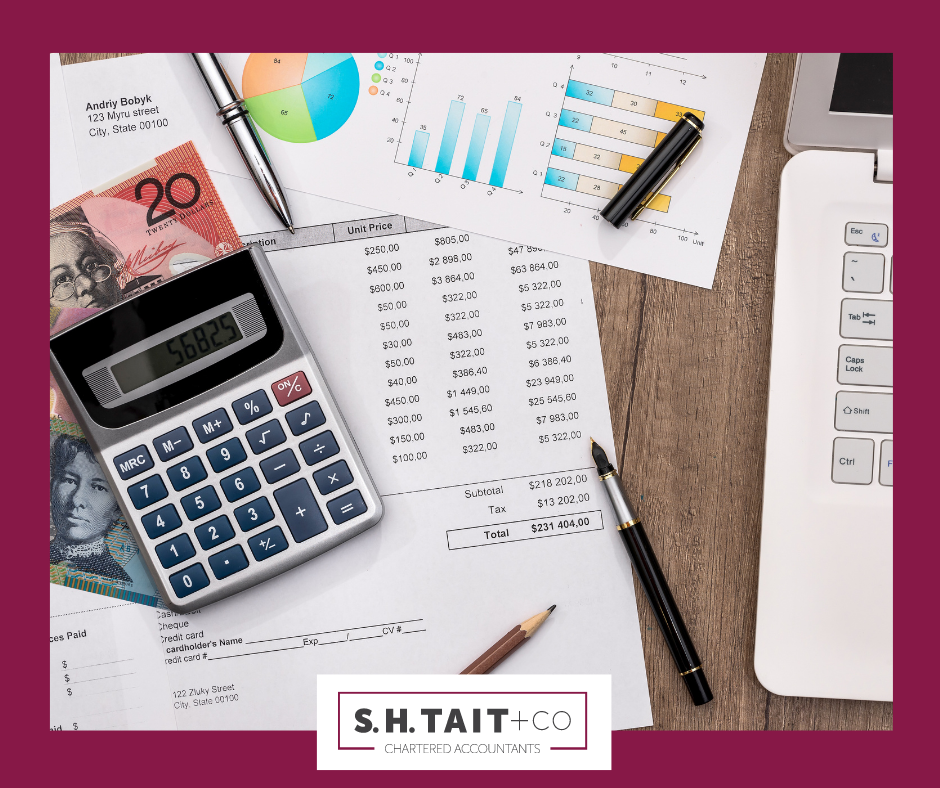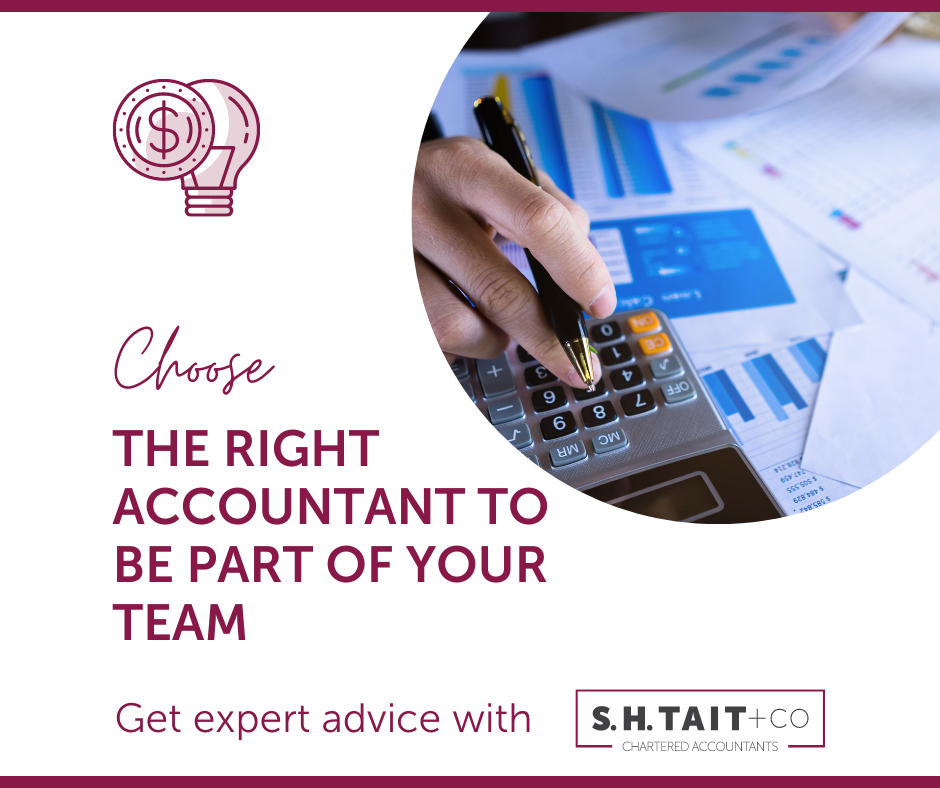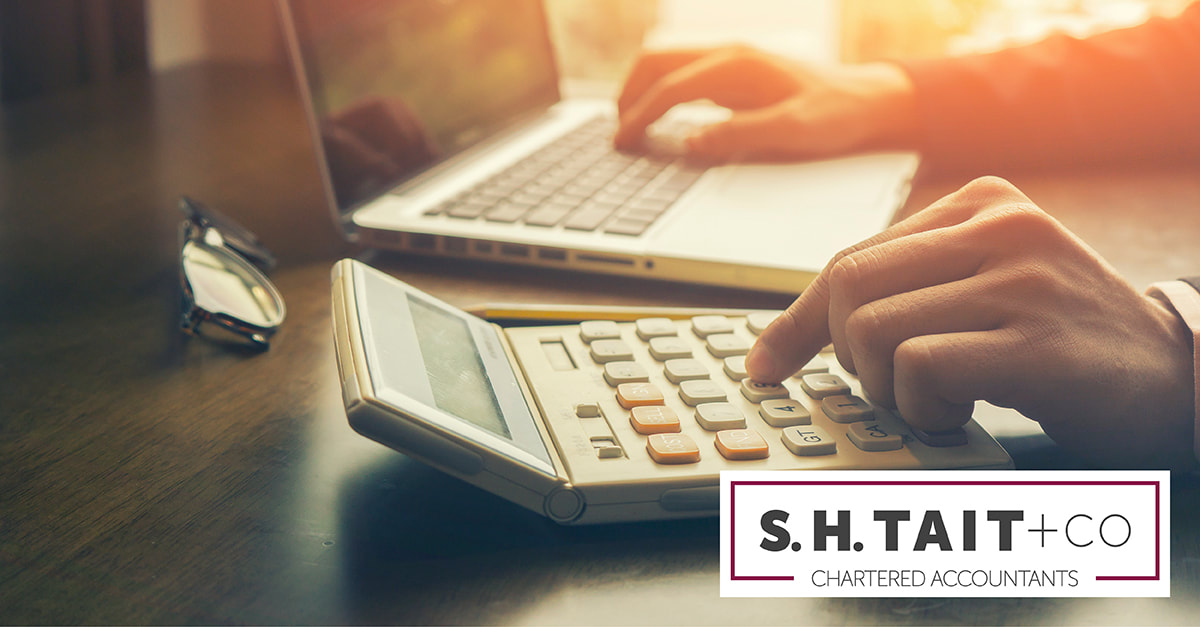|
Partnering with a great accountant can be a game-changer for any business. A good accountant can help you to navigate the complex world of taxes, regulations, and financial management, and provide valuable advice to help you achieve your business goals. Here are some reasons why it is important to have the right accountant for your business:
· Compliance: A good accountant will ensure that your business is compliant with all relevant tax laws and regulations. This can help to minimize the risk of fines, penalties, and legal action. They can keep you updated with the latest tax regulations and ensure that you are paying the right amount of tax. · Tax planning: A good accountant will work with you to develop a tax plan that effectively manages your tax liability. This can help to save you money and keep more of your profits. They can help you to identify tax-saving opportunities and provide strategies to reduce your tax bill. · Business advice: A good accountant can provide valuable advice to help you make informed business decisions. This includes things like budgeting, cash flow management, and financial forecasting. They can help you to understand your financials and provide insights on how to improve your bottom line. · Record keeping: A good accountant will ensure that your financial records are accurate and up-to-date. This includes things like invoicing, payroll, and bookkeeping. They can help you to keep track of your financial transactions, and provide reports that give you a clear picture of your financial position. · Business strategy: A good accountant will understand your business and industry, and can help you to develop a strategy that aligns with your goals and objectives. This includes things like cost reduction, growth strategies, and exit planning. They can provide insights on how to improve your business performance and help you to plan for the future. · Time-saving: A good accountant will save you time by handling all of your financial and tax-related tasks, allowing you to focus on running your business. They can take care of your financials and provide you with the information you need to make informed decisions. In conclusion, partnering with a great accountant can bring numerous benefits to your business. A good accountant can help you to stay compliant, minimize your tax liability, provide valuable financial advice, keep your records accurate, develop a sound business strategy, and save you time. By working with a great accountant, you can feel confident that your financials are in good hands and focus on growing your business.
0 Comments
Accountancy is the process of measuring, processing, and communicating financial information about an organisation. This includes things like maintaining and analyzing financial records and preparing financial statements and cash flow projections. Accountancy is a critical function for any organisation, as it helps to provide insight into the financial health and performance of a business.
There are different types of accountancy, such as financial accounting, management accounting, and tax accounting. Financial accounting focuses on providing financial information to external stakeholders, such as investors and creditors. Management accounting focuses on providing financial information to internal stakeholders, such as management and employees, to help them make informed decisions. Tax accounting focuses on ensuring compliance with tax laws and regulations and effectively managing a business's tax liability. The field of accountancy is also regulated, and there are different professional qualifications, such as a Certified Public Accountant (CPA) or a Chartered Accountant (CA), that are awarded to those who pass rigorous exams and meet experience requirements. CPAs and CAs must comply with the professional standards issued by the Accounting Professional & Ethical Standards Board (APESB). Overall, accountancy is the process of measuring, processing and communicating financial information about an organisation, it encompasses different types of accountancy, such as financial accounting, management accounting and tax accounting, and it is a regulated field with different professional qualifications. It is a critical function for any organization as it helps to provide insight into the financial health and performance of the business. When it comes to running a business, one of the most important decisions you will make is choosing an accountant. A good accountant can help you grow your business and ensure that your finances are in order, while a not so good accountant can cause more harm than good. That's why it's crucial to find an accountant who is not only experienced and knowledgeable but also someone you can work with as part of a team.
At S.H Tait & Co, we understand the importance of having a strong relationship between a business owner and their accountant. We believe that the key to success is building a partnership based on trust and communication. Our team of experienced accountants work closely with our clients to provide tailored solutions that meet their specific needs and goals. Here are some key factors to consider when choosing an accountant to help you grow your business: Experience and Qualifications The first thing to consider is the experience and qualifications of the accountant. You want to find someone who has the expertise and knowledge to help you navigate the complexities of tax and finance. Make sure to ask about their experience working with businesses similar to yours, and check if they have relevant certifications such as being a registered tax agent. Communication and Availability Another important factor to consider is communication and availability. You want an accountant who is responsive and available to answer your questions and provide guidance when you need it. A good accountant should be able to explain complex financial information in a way that is easy to understand. Teamwork and Collaboration Lastly, it's important to find an accountant who is willing to work with you as part of a team. This means collaborating with you to develop a strategy that aligns with your business goals. Your accountant should be able to provide insights and advice to help you make informed decisions, and be willing to work closely with other members of your team, such as lawyers or financial planners. In conclusion, finding the right accountant is crucial to the success of your business. At S.H Tait & Co, we believe that building a strong relationship based on trust and communication is essential to achieving this success. Our experienced team of accountants is here to help you grow your business and achieve your financial goals. Contact us today to learn more about how we can help you! Significant change to claiming working from home expenses Before 1 July 2022, an individual taxpayer that incurred additional deductible expenses as a result of working from home, had a choice of three methods to claim these expenses. These choices were: The shortcut method – which was available from 1 March 2020 to 30 June 2022; The fixed-rate method – which was available from 1 July 1998 to 30 June 2022; or Actual expenses, that is calculating the actual expenses incurred as a result of working from home (Editor: This method can be burdensome to apply in practice) From 1 July 2022, as a result of the release of PCG 2023/1 by the ATO, the shortcut method and the fixed-rate method have been abolished. A replacement method that can be used instead of the actual expenses method (which has not been abolished) is the revised fixed-rate method. Under the revised fixed-rate method, a deduction can be claimed of 67 cents per hour for energy expenses (electricity and gas), internet expenses, mobile and home phone expenses, and stationery and computer consumables. Other expenses associated with working from home, such as depreciation of home office furniture and a personally owned computer used at home for work purposes, will need to be calculated on an actual basis when using the revised fixed-rate method. To claim a deduction under the new fixed-rate method, an individual needs to meet three criteria, which are: The individual is working from home while carrying out their employment duties or carrying on their business on or after 1 July 2022; They are incurring additional running expenses of the kind outlined in the above discussion as to what the 67 cents per hour amount reflects, as a result of working from home; They keep and retain relevant records in respect of the time they spend working from home and for the additional running expenses (covered by the rate per hour) they are incurring. There are strict record keeping requirements associated with this new method. For the year ending 30 June 2023, a taxpayer using this new method will need to keep a record which is representative of the total number of hours worked from home during the period from 1 July 2022 to 28 February 2023. The taxpayer will also need to keep a record of the total number of actual hours they worked from home for the period 1 March 2023 to 30 June 2023. The record of the actual hours worked from home could be maintained by timesheets, rosters, timetracking apps, logs of time spent accessing employer systems or online business systems, or a diary kept contemporaneously. For the year ending 30 June 2024 and later income years, a taxpayer using this method must also keep a record of actual hours worked from home for the entire year. Under both the short-cut method and the previous fixed-rate method, there was no need for detailed record keeping of the actual hours worked from home. Estimates were acceptable. This is a significant change and increases the record keeping burden on taxpayers. Another significant change, which results in an increase in record keeping obligations under the revised fixed-rate method, is that in relation to running costs such as energy costs, phone and internet costs, a taxpayer needs to maintain at least one monthly or quarterly bill. This is because the ATO now requires proof that the individual has incurred the running costs represented by the 67 cents per hour deduction. Transfer balance cap indexation An individual’s transfer balance cap (‘TBC’) determines the maximum amount they can commit to a retirement phase interest in their super fund, such as an account-based pension, without being subject to penal taxation. When the TBC concept was introduced with effect from 1 July 2017, it was initially $1,600,000. It was increased by $100,000 as of 1 July 2021 to $1,700,000. The TBC increases in $100,000 increments (or multiples of $100,000) in line with the Consumer Price Index (‘CPI’). As a result of a substantial increase in the CPI, the TBC is due to increase on 1 July 2023 by $200,000. Accordingly, an increase in the TBC is seen as a good thing, as it potentially means an individual can have more of their superannuation interest supporting a tax-free pension. Individuals who start their first retirement phase income stream (otherwise known as a pension) on or after 1 July 2023 will have a TBC of $1.9 million. From 1 July 2023 individuals will have a TBC between $1.6 million and $1.9 million. An individual who already had a transfer balance account and at any time met or exceeded their personal TBC will not be entitled to indexation, and their personal TBC will remain the same. For example, an individual who started their first retirement phase income stream, an account based pension, on 1 January 2022 with a value of $1,700,000 at the time of commencement, would have fully utilised their then TBC of $1,700,000. Such an individual, having already fully utilised their TBC, will not gain any benefit from the increase in the TBC due to indexation. Where an individual has partially utilised their TBC before 1 July 2023, instead of benefiting from the full $200,000 increase in the TBC, they will have access to a proportional indexation of their TBC based on the unused cap percentage of their transfer balance account. ATO and Australian Federal Police crackdown on GST-fraud promoters A raft of enforcement activity has been undertaken across the country by the ATO-led Serious Financial Crime Taskforce, including the execution of search warrants and issuing of warning letters. At 31 December 2022, the ATO took compliance action on more than 53,000 clients and stopped approximately $2.5 billion in fraudulent GST refunds from being paid to individuals seeking to defraud the system. Two individuals have been sentenced to jail time for their crimes so far, following their arrest in 2022. This follows 87 earlier arrests across the country, with many more to come. The ATO has commenced writing to more than 20,000 individuals involved in the fraud, warning them of the serious consequences coming their way unless they come forward and repay the money they have defrauded. The fraud was first detected in early 2022 and involved offenders inventing fake businesses and Australian business number (ABN) applications, then submitting fictitious Business Activity Statements in an attempt to gain a false GST refund. Promoters of the fraud use social media and other channels to recruit participants. The ATO has been issuing warnings to the community to be on the lookout for fraud schemes that are being promoted through social media and other channels. For those who may be tempted by the promise of big gains, the ATO has sophisticated risk models and works with banks, law enforcement agencies, and other organisations to share information and detect fraud. It also has access to intelligence through community tip offs, social media platforms, and other information sources. Please Note: Many of the comments in this publication are general in nature and anyone intending to apply the information to practical circumstances should seek professional advice to independently verify their interpretation and the information’s applicability to their particular circumstances.
|
Archives
June 2024
Categories |
Quick Links |
Find Us |
Contact UsPhone: 07 4957 2231
Fax: 07 4951 4382 Email: [email protected] Visit: First Floor, City Plaza 45 Wood St Mackay QLD 4740 Mail: P.O. Box 16 Mackay QLD 4740 |
Follow Us |





 RSS Feed
RSS Feed